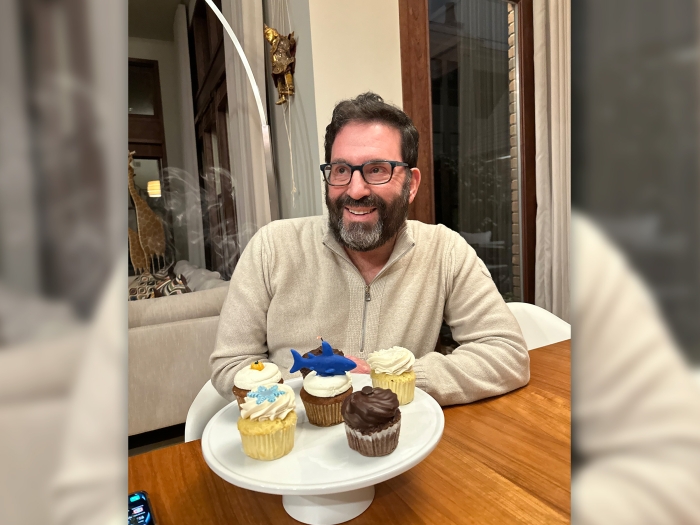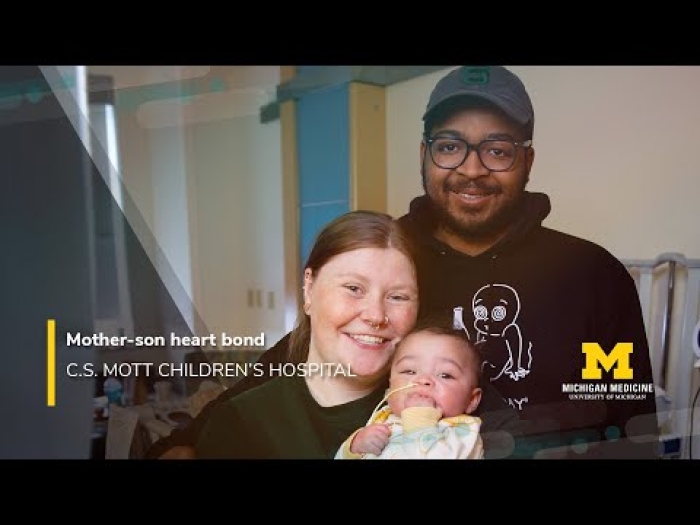The Eisenberg Awards are presented by the Joint Commission and National Quality Forum.
11:30 AM
Author |
ANN ARBOR, MI – A collaborative partnership dedicated to improving statewide cardiovascular care and outcomes — hosted at Michigan Medicine — received national recognition for efforts in patient safety and quality Tuesday.
The Blue Cross Blue Shield of Michigan Cardiovascular Consortium, also known as BMC2, earned the 2023 John M. Eisenberg Patient Safety and Quality Award in the local level innovation category. The honor is presented annually by The Joint Commission and the National Quality Forum (NQF).
BMC2 received the award for its significant improvements in the documentation of radiation use, a decrease in high-dose radiation exposure and reduction in opioid prescribing rates for patients.
“BMC2’s work impacts over 30,000 patients treated by hundreds of physicians from more than 100 hospital teams each year,” said Hitinder Gurm, MBBS, chief medical officer at University of Michigan Health and director of BMC2.
“We are fortunate to have this unique partnership between providers, hospitals and payers that is focused solely on improving safety, quality and appropriateness of care,” said Gurm, who is also a cardiologist at the U-M Health Frankel Cardiovascular Center. “The collaborative creates data-driven quality improvement goals and initiatives, shares best practices and distributes reports benchmarked to statewide performance — all focused on improving cardiovascular care throughout Michigan.”
The statewide quality improvement collaborative develops and administers a portfolio of interventions for patients who undergo heart stenting, vascular surgical procedures and transcatheter valve procedures in Michigan. The consortium is one of 22 Collaborative Quality Initiatives, or CQIs, sponsored by Blue Cross Blue Shield of Michigan and Blue Care Network as part of the BCBSM Value Partnerships program.
In Michigan, documentation of radiation use improved from 73.1% in 2019 to 85.5% in 2021, and BMC2 sites are outperforming national rates, which were 57.5% in 2019 and 74.3% in 2021. BMC2 sites achieved an overall 43% decrease in cases with high-dose radiation exposure (2.8% in 2018 to 1.2% in 2021), affecting hundreds of patients and care teams.
The consortium’s work also helped to reduce opioid pill prescribing; data showed improvement in the rate of patients with a prescription of fewer than 10 opioid pills by approximately 30% between 2018 and 2021.
In addition, BMC2 has been exploring strategies to address healthcare disparities, and partners with a patient advisory council to create resources for patients and providers.
“It makes us all so proud to see this work translate directly into improved outcomes for patients, and we are grateful at Michigan Medicine for this tremendous opportunity to partner with health care centers across the state in this effort,” said Nicholas Osborne, M.D., M.S., the Ramon Berguer, M.D., Ph.D., Research Professor of Vascular Surgery at U-M Medical School and director of BMC2 Vascular Surgery.
The patient safety awards program launched in 2002 and honors the late John M. Eisenberg, M.D., M.B.A., former administrator of the Agency for Healthcare Research and Quality (AHRQ). They bring together the quality community to recognize groundbreaking initiatives in healthcare that are consistent with the aims of the National Quality Strategy: better care, healthy people and communities, and smarter spending.
BMC2 data has supported more than 100 publications in peer-reviewed medical journals and more than 100 presentations at national and international conferences.





